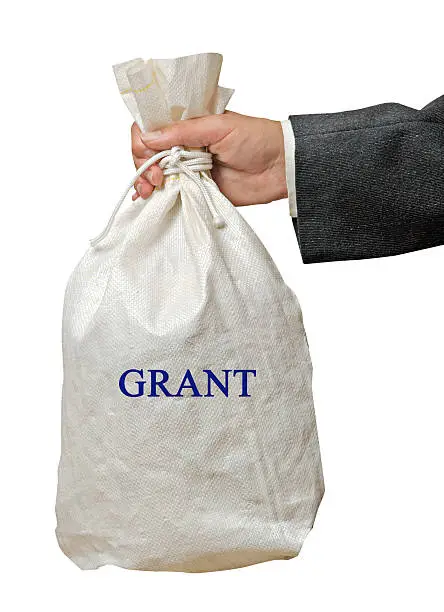Grants for Hispanic nonprofits refer to financial contributions or awards provided by government entities, private foundations, corporations, or philanthropic organizations specifically designated to support nonprofit organizations that serve and advocate for the needs of the Hispanic community.
These grants aim to address disparities, promote cultural competency, and empower Hispanic nonprofits to implement programs and services that positively impact the well-being and development of the Hispanic population.
The funding may cover various areas such as education, healthcare, community development, and cultural preservation, aligning with the unique challenges and opportunities faced by nonprofits serving Hispanic communities.
Grants play a crucial role in supporting the growth and impact of nonprofits, and the availability of specific grants for Hispanic nonprofits underscores the commitment to diversity and inclusion in philanthropy.
Importance of Grants for Hispanic Nonprofits:
- Addressing Disparities:
- Hispanic nonprofits often serve communities facing disparities in education, healthcare, and economic opportunities. Grants provide targeted funding to address these specific challenges and work towards reducing inequalities.
- Cultural Competency:
- Grants designated for Hispanic nonprofits recognize the importance of cultural competency. These funds enable organizations to tailor their programs and services to the unique needs and cultural nuances of the Hispanic community.
- Community Empowerment:
- By supporting Hispanic nonprofits through grants, funders contribute to the empowerment of the Hispanic community. This empowerment goes beyond financial aid, fostering self-sufficiency and community-driven initiatives.
Unique Challenges Faced by Hispanic Nonprofits:
- Language Barriers:
- Many Hispanic nonprofits serve communities where English may not be the primary language. Grants play a vital role in enabling these organizations to bridge language gaps and effectively communicate with their target audience.
- Access to Resources:
- Hispanic nonprofits may encounter challenges in accessing mainstream resources. Grants provide a lifeline, allowing these organizations to access the necessary resources to implement impactful programs.
- Cultural Sensitivity:
- Grants for Hispanic nonprofits often emphasize the importance of cultural sensitivity. This recognizes that understanding and respecting cultural nuances are key to the success of programs serving the Hispanic community.
Types of Grants for Hispanic Nonprofits:
- Community Development Grants:
- Funding aimed at supporting projects that enhance the overall well-being and development of Hispanic communities, including affordable housing, infrastructure, and economic development.
- Education Grants:
- Grants directed towards improving educational opportunities for Hispanic individuals, addressing challenges such as language barriers and lack of access to quality education.
- Health and Wellness Grants:
- Funding to support healthcare initiatives, addressing disparities in healthcare access and outcomes within the Hispanic community.
- Cultural Preservation Grants:
- Grants that focus on preserving and promoting Hispanic culture, arts, and heritage, recognizing the importance of cultural identity in community well-being.
List of Funders or Foundations awarding Grants to Hispanic Nonprofits
- The Hispanic Federation:
- Focus: Various areas including education, health, immigration, and economic empowerment.
- W.K. Kellogg Foundation:
- Focus: Supporting vulnerable children and families, with a commitment to racial equity and community engagement.
- Ford Foundation:
- Focus: Advancing social justice, including support for organizations addressing racial and economic inequalities.
- California Endowment:
- Focus: Health equity in California, particularly in underserved communities, which often include Hispanic populations.
- Weingart Foundation:
- Focus: Southern California nonprofits working on issues such as health, education, and economic opportunity.
- Marguerite Casey Foundation:
- Focus: Supporting grassroots organizations and movements that address systemic issues affecting low-income families, including Hispanic communities.
- The Annie E. Casey Foundation:
- Focus: Improving outcomes for children and families, with an emphasis on building community capacity.
- Robert Wood Johnson Foundation:
- Focus: Health equity, with an interest in projects addressing social determinants of health affecting Hispanic populations.
- National Council of La Raza (NCLR) – UnidosUS:
- Focus: Advancing opportunities for Hispanic communities, including advocacy and education initiatives.
- Hispanic Scholarship Fund:
- Focus: Education and scholarships for Hispanic students.
- Community Foundation for Greater Atlanta – Goizueta Foundation:
- Focus: Education, arts and culture, and improving the quality of life for Hispanic families in the Atlanta area.
- José Feliciano Center for Urban Excellence – Puerto Rico Community Foundation:
- Focus: Supporting initiatives that enhance the quality of life for Puerto Ricans and Hispanics in Puerto Rico.
- Rockefeller Foundation:
- Focus: Advancing health, economic, and racial equity globally, including programs that benefit Hispanic communities.
- Surdna Foundation:
- Focus: Sustainable communities, fostering just and sustainable environments, which can positively impact Hispanic neighborhoods.
- Open Society Foundations:
- Focus: Promoting justice, democratic governance, and human rights, with an interest in organizations addressing issues faced by Hispanic communities.
- Robert R. McCormick Foundation:
- Focus: Strengthening communities in the Midwest, with an emphasis on education, civic engagement, and health.
- Carnegie Corporation of New York:
- Focus: Education, democracy, and international peace, with initiatives that may benefit Hispanic populations.
- Hispanic Heritage Foundation:
- Focus: Empowering Hispanic communities through education, workforce development, and leadership programs.
- Charles Stewart Mott Foundation:
- Focus: Supporting efforts that promote a fair, equitable, and sustainable society, including initiatives benefiting Hispanic communities.
- The California Wellness Foundation:
- Focus: Advancing wellness and equity in California, with an interest in organizations addressing health disparities within Hispanic populations.
How to Apply for the grant
1. Research Grant Opportunities:
- Identify foundations, government agencies, and organizations that specifically support Hispanic nonprofits. Review their grant programs, eligibility criteria, and areas of focus to ensure alignment with your organization’s mission and projects.
2. Understand Grant Requirements:
- Carefully read the guidelines and requirements of each grant opportunity. Take note of eligibility criteria, application deadlines, required documentation, and any specific instructions provided by the funder.
3. Develop a Strong Proposal:
- Clearly articulate your organization’s mission, goals, and the specific project or initiative for which you are seeking funding. Address how your program aligns with the grantmaker’s priorities, and emphasize the impact it will have on the Hispanic community.
4. Create a Detailed Budget:
- Outline a comprehensive budget for your proposed project, including all anticipated expenses. Ensure that your budget is realistic, well-justified, and aligns with the funder’s guidelines.
5. Gather Necessary Documentation:
- Collect required documents, such as your organization’s legal documents, financial statements, and any additional information requested by the grantmaker. Make sure all documents are up-to-date and accurately reflect your nonprofit’s status.
6. Craft a Compelling Narrative:
- Tell a compelling story in your grant application. Clearly explain the problem your organization aims to address, your proposed solution, and the anticipated outcomes. Use data, testimonials, and evidence to support your narrative.
7. Highlight Cultural Competency:
- Emphasize your organization’s cultural competency in serving the Hispanic community. Showcase your understanding of cultural nuances, community engagement strategies, and any partnerships with local Hispanic organizations.
8. Demonstrate Impact Measurement:
- Clearly outline how you will measure the success of your project. Define key performance indicators and demonstrate your commitment to monitoring and evaluating the outcomes of the funded initiative.
9. Submit a Letter of Inquiry (if required):
- Some grantmakers may request a letter of inquiry before a full proposal. Craft a concise letter introducing your organization, the proposed project, and why it aligns with the grantmaker’s priorities.
10. Submit Application Online or via Mail:
- Follow the grantmaker’s specified submission process. Most applications are submitted online, but if a physical submission is required, ensure all documents are securely packaged and sent by the deadline.
11. Follow Up:
- After submitting your application, follow up with the grantmaker if there is no acknowledgment receipt. Respectfully inquire about the timeline for decisions and any additional information they may require.
12. Prepare for Possible Interviews:
- Be prepared for the possibility of an interview or site visit. Anticipate questions about your organization, project, and how the grant will be utilized.
13. Stay Engaged and Express Gratitude:
- Stay engaged with the grantmaker even if your application is not successful. Express gratitude for their consideration, seek feedback, and continue building relationships for potential future opportunities.
The Impact of Grants on Hispanic Nonprofits:
Grants play a pivotal role in empowering Hispanic nonprofits to create lasting positive changes within their communities. The impact of grants extends far beyond the financial support provided, influencing organizational capacity, community well-being, and the overall trajectory of social change. Here’s an in-depth exploration of the multifaceted impact of grants on Hispanic nonprofits:
1. Program Implementation and Expansion:
- Grants enable Hispanic nonprofits to implement and expand essential programs and services. This, in turn, directly addresses the unique challenges faced by the Hispanic community, such as educational disparities, healthcare access, and economic opportunities.
2. Capacity Building:
- Beyond funding specific projects, grants often support capacity-building initiatives within nonprofits. This includes training programs, technology upgrades, and organizational development, strengthening the nonprofit’s ability to serve the community effectively.
3. Cultural Competency Enhancement:
- Grants designated for Hispanic nonprofits recognize the importance of cultural competency. Organizations can use these funds to enhance their understanding of cultural nuances, language barriers, and unique needs, ensuring more impactful and sensitive service delivery.
4. Community Engagement and Empowerment:
- Grants empower nonprofits to engage directly with the Hispanic community. Through outreach programs, community events, and educational initiatives, nonprofits can foster a sense of empowerment, inclusivity, and active participation among community members.
5. Addressing Health Disparities:
- Grants focused on healthcare initiatives contribute significantly to addressing health disparities within the Hispanic population. Nonprofits can use funding to implement preventive healthcare programs, increase access to healthcare services, and promote overall well-being.
6. Educational Advancement:
- Grants directed towards education empower Hispanic nonprofits to create initiatives that improve access to quality education. This may include scholarship programs, after-school programs, and educational resources that directly impact the academic success of Hispanic students.
7. Economic Development and Job Opportunities:
- Grants supporting economic development initiatives contribute to job creation and increased economic opportunities within the Hispanic community. Nonprofits can implement projects that focus on entrepreneurship, job training, and financial literacy.
8. Cultural Preservation and Arts Initiatives:
- Grants promoting cultural preservation contribute to the vibrancy of Hispanic communities. Nonprofits can organize cultural events, support local artists, and preserve heritage through initiatives that celebrate the richness of Hispanic culture.
9. Advocacy and Social Justice:
- Grants empower Hispanic nonprofits to engage in advocacy and social justice initiatives. With increased resources, these organizations can amplify their voices, address systemic issues, and advocate for policies that benefit the Hispanic community.
10. Measurable Community Impact:
- Grants often require nonprofits to set measurable goals and outcomes. This accountability fosters a results-driven approach, ensuring that the funded initiatives generate tangible and positive changes within the Hispanic community.
11. Collaborative Partnerships:
- Grants facilitate the formation of partnerships between Hispanic nonprofits and other stakeholders, including government entities, businesses, and other nonprofits. These collaborations amplify the impact of initiatives and create a more cohesive approach to community development.
12. Long-Term Sustainability:
- Grants contribute to the long-term sustainability of Hispanic nonprofits. By providing financial stability and resources, grants enable organizations to plan for the future, invest in strategic initiatives, and adapt to changing community needs.
Tips for Writing a Successful Grant Proposal
Writing a successful grant proposal requires careful planning, a compelling narrative, and a clear demonstration of how your organization aligns with the funder’s priorities. Here are in-depth tips to guide you in crafting a persuasive grant proposal for Hispanic nonprofits:
1. Understand the Funder:
- Thoroughly research the grantmaking organization. Understand their mission, values, and specific focus areas. Tailor your proposal to align closely with the funder’s priorities.
2. Craft a Clear and Compelling Narrative:
- Develop a compelling story that clearly outlines the problem your organization aims to address, your proposed solution, and the anticipated impact on the Hispanic community. Use language that resonates with the funder and emphasizes the significance of your work.
3. Define Measurable Objectives:
- Clearly articulate specific, measurable, achievable, relevant, and time-bound (SMART) objectives. Define the outcomes you expect from the funded project and explain how you will measure success.
4. Budget Realistically:
- Develop a detailed and realistic budget that aligns with the goals of the project. Clearly outline how grant funds will be allocated and justify each expense. Be transparent about other funding sources if applicable.
5. Highlight Cultural Competency:
- Emphasize your organization’s cultural competence in serving the Hispanic community. Showcase your understanding of cultural nuances, community engagement strategies, and partnerships with local Hispanic organizations.
6. Demonstrate Organizational Capacity:
- Showcase your organization’s capacity to successfully implement the proposed project. Highlight relevant experience, qualified staff, and any partnerships that enhance your ability to achieve project goals.
7. Show Collaboration and Partnerships:
- Emphasize collaborative efforts with other organizations, community groups, or stakeholders. This demonstrates a comprehensive approach and strengthens your proposal.
8. Address Sustainability:
- Explain how the project will be sustained beyond the grant period. Showcase your organization’s long-term vision and strategy for continued impact.
9. Include Data and Evidence:
- Support your proposal with data, statistics, and evidence that validate the need for your project. Use testimonials, case studies, or research findings to reinforce the importance of your work.
10. Customize Each Proposal:
- Avoid using a one-size-fits-all approach. Customize each proposal to meet the specific requirements and preferences of the funder. Tailoring your proposal demonstrates a genuine interest in their mission.
11. Engage the Funder’s Interest Early:
- Capture the funder’s attention from the beginning. The executive summary or introduction should succinctly communicate the essence of your proposal and why it deserves consideration.
12. Seek Feedback:
- Before submitting your final proposal, seek feedback from colleagues, mentors, or individuals familiar with successful grant writing. Constructive feedback can help refine your proposal.
13. Follow Submission Guidelines:
- Adhere strictly to the funder’s guidelines. Ensure that you submit all required documents, meet formatting requirements, and submit the proposal by the specified deadline.
14. Professional Presentation:
- Pay attention to the professionalism of your proposal. Use clear, concise language, avoid jargon, and proofread meticulously to eliminate errors.
15. Express Gratitude:
- Conclude your proposal by expressing gratitude for the funder’s consideration. Show enthusiasm for the potential partnership and reiterate your commitment to creating positive change.
Conclusion:
Grants for Hispanic nonprofits represent a beacon of hope and empowerment, embodying the commitment to fostering positive change within the Hispanic community. As we navigate the landscape of philanthropy, it is evident that these grants go beyond mere financial support—they are catalysts for social equity, cultural preservation, and community resilience.
The impact of grants extends from addressing immediate needs to fostering long-term sustainability, allowing Hispanic nonprofits to amplify their voices, bridge disparities, and create lasting legacies.
Through strategic partnerships, cultural competency, and a shared vision for a more inclusive society, these grants serve as a cornerstone for organizations dedicated to uplifting and empowering the Hispanic community. As we celebrate the strides made through these grants, it is essential to recognize the ongoing efforts and resilience of Hispanic nonprofits.
The journey toward social justice, education, healthcare equity, and cultural preservation continues, and grants provide the necessary fuel for this transformative voyage.
In the spirit of collaboration and shared commitment, grants propel Hispanic nonprofits towards a future where every individual can thrive, irrespective of cultural background or socioeconomic status. Let us embrace the profound impact of grants, acknowledging their role in creating a brighter and more equitable tomorrow for the vibrant and diverse Hispanic communities they serve.
Recommended Books for Enhancing Grant Writing Skills
To further enhance your grant writing skills and stay on top of these trends, consider diving into some insightful literature.
Here are a few recommended books:
- The Ultimate Guide to Federal Grant Applications: Techniques for Success – This book is a must-read for anyone looking to navigate the complex world of federal grant applications. It offers practical techniques, insider tips, and a comprehensive understanding of what it takes to create successful federal grant applications.
- Advanced Grant Writing for Nonprofits : Focuses on sophisticated techniques for experienced grant writers. It delves into complex aspects of proposal development, offering strategies for dealing with competitive grant environments and large funding bodies.
- Mastering Grant Writing: A Nonprofit’s Guide to Effective Proposal Development and Submission: This book serves as a comprehensive guide, covering the entire process of grant writing. It includes tips on understanding funders’ perspectives, crafting compelling narratives, and the nuances of proposal submission.
- Becoming the Grant Guru: Freelancer’s Guide to Success : Tailored for freelance grant writers, this book provides insights into building a successful career in grant writing. It includes strategies for finding clients, managing projects, and maximizing the impact of grant proposals.
- The Small Business’s Guide to Winning Grants : This resource is particularly useful for small businesses looking to secure grants. It offers practical advice on identifying suitable grant opportunities, understanding the requirements of small business grants, and crafting winning proposals.
- Grant Readiness Guide: Preparing to Triumph in Funding Opportunities : A comprehensive resource for organizations at various stages of grant preparedness. It provides a roadmap for developing organizational capacity, aligning projects with funders’ goals, and creating compelling applications.
- Her Capital: Unlocking Women’s Small Business Grants: Specifically designed for women entrepreneurs, this book offers guidance on navigating the landscape of small business grants for women. It includes insights into grant sources, application strategies, and tips for leveraging grants to grow a business.
Unlock Your Grant Success!
Join our email list now for exclusive grant-writing tips and unique grant opportunities delivered straight to your inbox. Click here to Subscribe. Don’t miss out!




